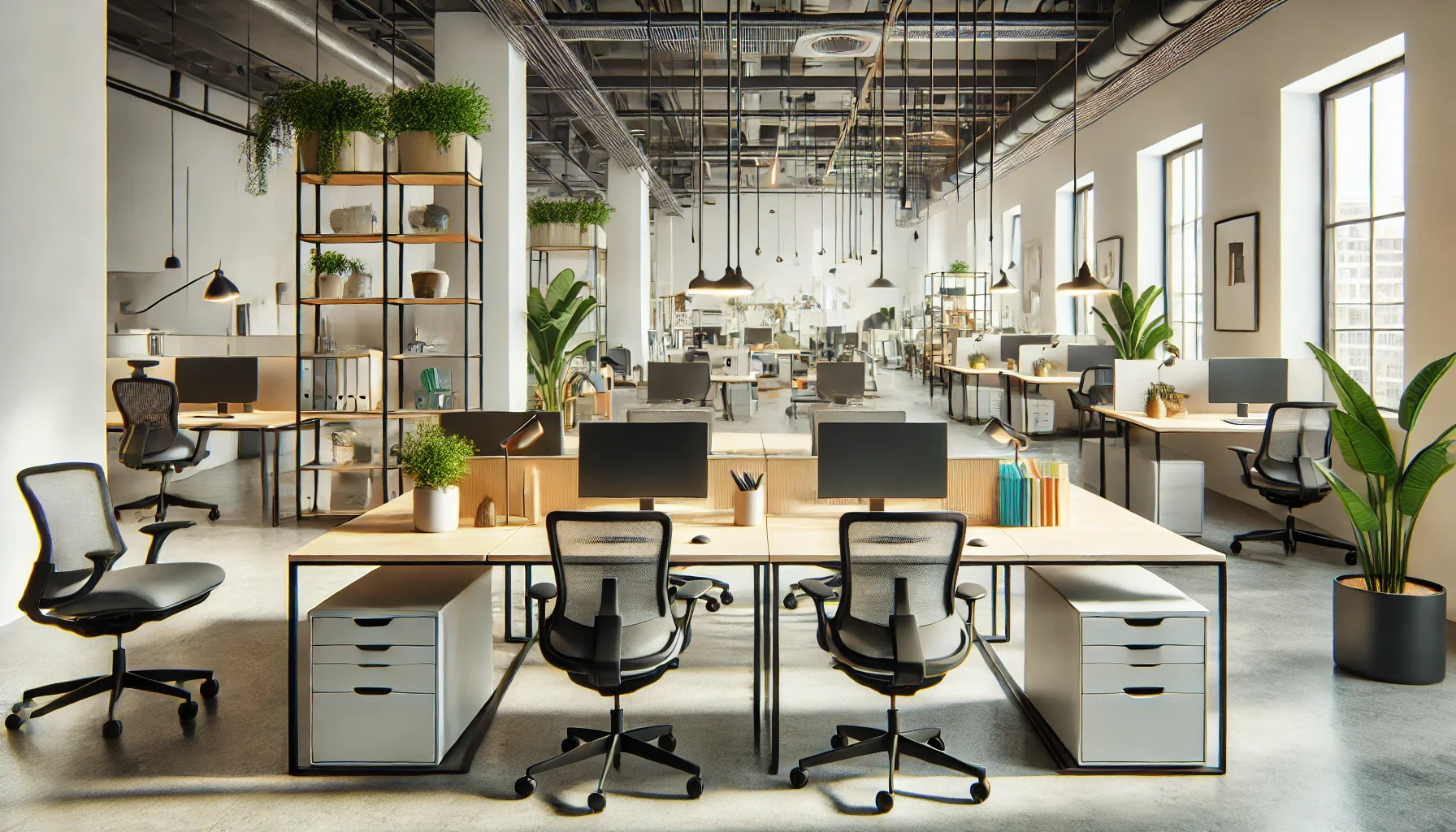What Startups Should Know Before Buying Their First Office Furniture
Launching a startup is a whirlwind of excitement, ambition, and crucial decision-making. Amidst developing a product, hiring a team, and building a brand, there’s one practical yet often underestimated task — furnishing your first office. The right office furniture is more than just chairs and desks; it’s about shaping a productive work culture, reflecting your company identity, and investing in your team’s wellbeing.
Whether you’re moving into a shared workspace, leasing your first office, or renovating a home-based setup, buying office furniture is a big step. Here’s what every startup should know before making their first furniture purchase — and why thoughtful planning can save time, money, and headaches down the line.
1. Understand Your Current and Future Needs
It’s tempting to dive straight into shopping, especially when browsing stylish office setups from leading brands like RC Willey. But before making any purchase, take a step back and evaluate your team’s current and near-future requirements.
- Team Size: How many employees do you currently have? Are you hiring soon?
- Work Habits: Do your team members collaborate often or work independently?
- Workspace Type: Will your team work full-time in-office, hybrid, or remote?
Anticipating growth is crucial. Avoid buying just enough furniture for today — instead, plan for scalability. Modular pieces or reconfigurable furniture can grow with you, saving you from a complete redesign six months down the road.
2. Prioritize Ergonomics Over Aesthetics (But Don’t Ignore Style)
Startups often lean toward trendy designs to impress clients and create a cool office vibe. While aesthetics matter, comfort and functionality should always come first.
Poorly designed furniture can lead to discomfort, fatigue, and even chronic pain — especially for employees who spend long hours seated. When shopping for chairs, desks, and other seating, make sure they support healthy posture and provide adjustability.
That said, don’t ignore visual appeal. Your office is a reflection of your brand. Colors, textures, and furniture layout should align with your startup’s culture — whether that’s sleek and modern, cozy and creative, or minimal and utilitarian.
3. Budget Wisely — Without Compromising Quality
Budgeting is a balancing act. Every dollar counts in the early stages of a startup, but going too cheap can backfire.
Low-quality furniture often wears out quickly, looks dated, or fails to provide adequate support. Instead, consider furniture as a long-term investment. Reliable brands like RC Willey offer quality office pieces that are stylish, durable, and competitively priced.
To manage costs effectively:
- Create a prioritized list: Start with essential items (desks, chairs, meeting tables), then add extras like lounge furniture or décor.
- Look for package deals: Retailers sometimes offer bundled discounts for startups or bulk purchases.
- Consider gently used furniture for non-essential areas — but stick with new, high-quality items for everyday use.
4. Maximize Space with Smart Layouts
Many startups operate out of small offices or coworking spaces. That’s why making the most of every square foot is vital.
Start with a clear layout. Use space planning tools or consult a designer to understand how desks, chairs, and storage units will fit without crowding the room. Leave enough room for movement, collaboration zones, and common areas like kitchens or break rooms.
Some tips to optimize space:
- Choose furniture with built-in storage.
- Go vertical with shelving units to free up floor space.
- Use foldable or stackable chairs for conference rooms or events.
Remember, a cluttered office can feel chaotic and hinder productivity — whereas a well-planned space supports focus and flow.
5. Choose Versatile and Multi-Functional Pieces
Startup needs change fast. One month you’re onboarding two new developers; the next, you need a quiet area for client calls.
That’s where versatile furniture becomes invaluable. Look for pieces that serve more than one function:
- Standing desks that convert to sitting.
- Tables that double as whiteboards.
- Storage ottomans that can also act as seats.
Having flexible furniture allows your office to adapt without constant re-investment. It’s also a clever way to save space and encourage creativity in how the team uses the environment.
6. Don’t Forget Tech Integration
In today’s digital age, furniture needs to do more than just sit pretty. It should support your technology seamlessly.
When choosing desks and tables, consider built-in cable management, charging ports, or spaces for monitors and docking stations. Conference tables should accommodate power strips and have access to outlets for video calls or presentations.
Ensuring your furniture plays well with your tech setup will reduce clutter and prevent those dreaded under-desk cable tangles.
7. Consider Delivery, Assembly, and Warranty
Before placing a large order, consider the logistics. How long will delivery take? Is assembly included, or will your team be wrestling with allen wrenches?
Reputable retailers like RC Willey not only offer a wide selection of modern office solutions but also provide delivery, setup, and customer support — a huge relief for busy founders.
Also, look for warranties or return policies. Startup environments can be unpredictable, and it’s smart to work with vendors who are flexible if you need to swap or return items.
8. Sustainability Matters
More startups are integrating sustainability into their mission — and your furniture choices can align with those values. Look for pieces made from recycled or responsibly sourced materials. Opt for long-lasting designs that won’t end up in a landfill after a year.
Sustainability isn’t just good ethics — it can resonate with eco-conscious clients, employees, and investors. Choosing furniture that supports your startup’s mission adds another layer of authenticity to your brand story.
Final Thoughts
Furnishing your first office is a milestone for any startup. It’s more than creating a place to work — it’s about shaping the culture, supporting your team, and laying the foundation for future success.
Take the time to plan, invest in quality where it counts, and work with trusted brands like RC Willey that understand the needs of growing businesses. Your office should inspire productivity, reflect your brand identity, and evolve with your journey.
After all, great companies are built not just with brilliant ideas — but also with well-designed spaces that bring those ideas to life.







